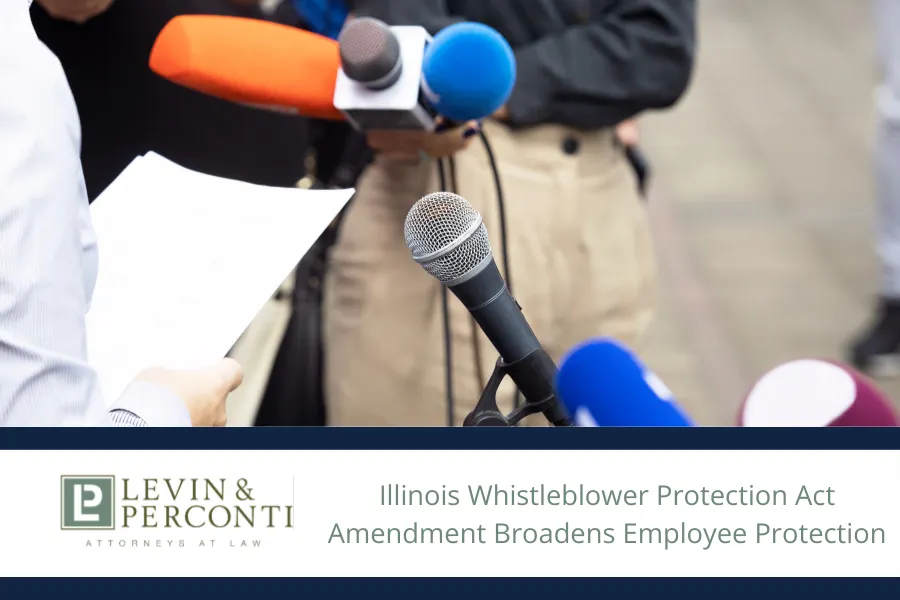
Content Reviewed by:
Steven M Levin
Content Reviewed by: Steven M Levin
Accordion Content
Since 1976, Steve Levin has been dedicated to helping people injured by others’ negligence. He is one of the first attorneys in the U.S. to prosecute nursing homes for abuse and negligence. He’s also helped write new legislation that governs the operation of nursing homes, including the Illinois Nursing Home Care Act. Moreover, Levin & Perconti has obtained the top three jury verdicts in nursing home negligence cases in Illinois.
Harmful Medication Overuse Often First Line of Defense for Managing Behaviorally Challenged Nursing Home Residents
There is excessive and unnecessary use of antipsychotics and psychoactive medications in U.S. nursing homes. These powerful drugs are sometimes given to patients living in long-term care facilities to calm behaviors associated with behavior disruptions and mental health illnesses. Antipsychotics can be so powerful that they sedate residents to the point where they become listless and unresponsive. Residents may be slumped in chairs or unable to get up from bed; they may no longer participate in activities like feeding themselves or engaging in routines they enjoy, or even talk with their loved ones. These medications are overly prescribed to nursing home residents who may be marked unruly or disruptive or when staff feel overworked and unable to support and service all residents due to understaffing or high turnover rates. Care teams will seek out specific medications that make patients with these issues easier to handle – or sadly, just to quiet them and make them lethargic and sleepy. Nursing home doctors have also been caught on relying heavily on the recommendation of nurses and other care staff when making these medication decisions.
- According to the Office of the Inspector General for the Department of Health and Human Services, more than half of atypical antipsychotic medications that affect at least 105,000 nursing home residents annually are being incorrectly paid for by Medicare, despite the drugs being deemed ineffective and potentially dangerous for the elderly population.
- Use is much higher among residents with dementia – the very individuals that the Food and Drug Administration (FDA) warns are at serious risk of medical complications and death from taking antipsychotics.
- The Society for Post-Acute and Long-Term Care Medicine found in a 2016 study that 68% of residents with dementia across 57 nursing home facilities were given antipsychotic drugs.
Another problem is that these drugs can be dangerous when used without a physician or family’s knowledge or consent, a haphazard tactic given that the mismanagement of these drugs has been known to cause sudden death. This practice, also known as chemical restraint, is unfortunately not new. However, Federal law prohibits the use of antipsychotic drugs or psychoactive drugs solely for the convenience of medical staff and to sedate a patient.
Some of the more common mental and behavioral health issues residents who are overprescribed these mind-altering drugs may be battling include:
- Addiction
- Post-traumatic stress disorder
- Alzheimer’s disease
- Disrobing
- Anxiety
- Dementia (Dementia patients are likely to receive a prescription for higher doses of antipsychotics, benzodiazepines, and antidepressants when they enter aged care and change doctors.)
- Paranoid personality disorder
- Hoarding
- Fear
- Spitting
- Aggression and agitation
- Repetitive actions
- Delusions
- Hitting and pacing
- Depression
- Crying and sadness
- Bipolar disorder
- Confusion
- Screaming and swearing
- Insomnia
- Wandering and elopement
While not all and only certain behavior conditions can be eliminated from this list, many can be better managed with the correct diagnosis, service providers, therapies, and at times, carefully prescribed and administered medications. And remember, sometimes worrisome outcries or a resident’s unwanted behavior could be their natural response to fear, overstimulation, sickness, pain, fatigue, confusion, hunger and thirst, boredom, or even medication side effects. These could also reveal serious symptoms of nursing home neglect or abuse and should not be ignored. Additionally, consent must be given to use these drugs as chemical restraints or for treating neuropsychiatric symptoms.
Antipsychotic Medications Are Widely Depended Upon, Abused, and Overused
Antipsychotics shouldn’t be used for behavioral problems that can be managed without medications. Yet, for decades, staff have been wrongfully using the powerful medications as a crutch-to-caregiving to make these patients easier to handle. Moreover, antipsychotic drugs can be hazardous when used without the patient’s physician or family’s knowledge or consent, a haphazard tactic given that the mismanagement and misuse of these drugs have been known to cause sudden death and drastically decline a person’s well-being.
Some of the most widely used antipsychotic drugs used in nursing homes today include:
- Aripiprazole (Abilify)
- Clozapine (Clozaril)
- Haloperidol (Haldol)
- Olanzapine (Zyprexa)
- Quetiapine (Seroquel)
- Risperidone (Risperdal)
- Ziprasidone (Geodon)
We can’t say this enough. The misuse or overuse of these prescriptions is extremely dangerous. These types of drugs have a heavily sedating effect, but they are also known to have severe side effects, including in some cases causing potentially lethal cardiac issues, increase risks of stroke, diabetes, wandering, and fatal falls.
What Types of Interventions Should Be Used Instead?
After several attempts to resolute the issue through programs, regulations, reviews, education, and awareness, the problem continues to be revisited.
For residents who have been appropriately assessed and behavioral health needs rightfully determined, the Centers for Medicare & Medicaid Services (CMS) says treatment options other than chemical restraints and medicated interventions should be used when possible.
Alternative and safer solutions to managing behavior and specific conditions in nursing home residents may include:
- Talking, counseling, and group therapies
- Music, arts, and creative therapies
- Ecotherapy and nature
- Complementary and alternative therapies such as acupuncture and massage
- Meditation
- Diet and nutritional changes
- Exercise and sleep schedules
- Family support
- Looking after your loved one’s physical and mental health
- Targeted and routine activities
During your next visit or phone check-in, if you see or notice any type of change in your loved one’s behavior or demeanor, do not hesitate to ask about a list of drugs they are taking that could be the cause. Be sure to have the nursing director confirm that the prescribed medications do not have any adverse interactions and are being administered according to the doctor’s instructions.
Understaffed Long-Term Care Facilities Contribute to Significant Mental and Behavioral Health Challenges for Many Patients
Facilities that take patients with behavioral issues without adequately trained staff and experienced professionals may put themselves and other residents at risk. And understaffed homes do even more significant harm because many have come to rely on overmedicating or chemically restraining residents so that they don’t have the extra work to do. This became especially true in the time of COVID-19.
A 2021 Human Rights Watch report included testimonials by nursing home workers who said, “Understaffing influenced their ability to provide sufficient and consistent support to residents, and that the absence of family visitors who previously assisted with care exacerbated this problem.” Additionally, staff also told the organization that, “Staff, administrators, and independent experts told Human Rights Watch that during the pandemic, shortages became particularly acute, undermining some nursing homes’ ability to provide quality care.”
But until nursing home enforcements stick with regulators and facility administrators and owners follow them, and the issues related to understaffed, overworked, underpaid, and sometimes undertrained care workers are genuinely addressed, this extensive problem is not going to be resolved. This pushes the nursing home abuse and neglect attorneys at Levin & Perconti to be more committed than ever to seek justice on behalf of your loved one who is being abused by the use of antipsychotic medications.
It can be challenging for relatives to know if their loved one is on the appropriate amount of medication and whether it is used as a sedative. First, discuss the list of drugs that are being given and make sure that you understand the reason for each one. Caregivers should be sure to ask questions about how these drugs are being used to manage their loved one’s conditions. If not, next contact a Long-Term Care Ombudsman in your community and a nursing home abuse and neglect attorney at Levin & Perconti with any questions or concerns.
Levin & Perconti: Attorneys for Nursing Home Residents with Behavioral Issues
For nearly three decades, we have successfully defended the rights of the elderly against nursing homes that feel drugging a resident to make their job more accessible is a best practice. If someone you love is lacking the services necessary to treat their mental health conditions and has been injured as a result, please contact the Chicago nursing home abuse and neglect attorneys of Levin & Perconti. Likewise, if someone you love is being given, or has been given, antipsychotic drugs and has been injured as a result, please reach out as soon as possible to prevent further risk of harm.
If you suspect nursing home negligence, please know that several legal options are likely available to help you and your family. You can schedule a time to discuss your concerns with us and how prescription drugs may be impacting your loved one. Call us by dialing 312-332-2872 or reach us toll-free at 877-374-1417. The consultation is free, and the call is confidential.
Also read: List of Dangerous Drugs Used & Abused by Nursing Homes



